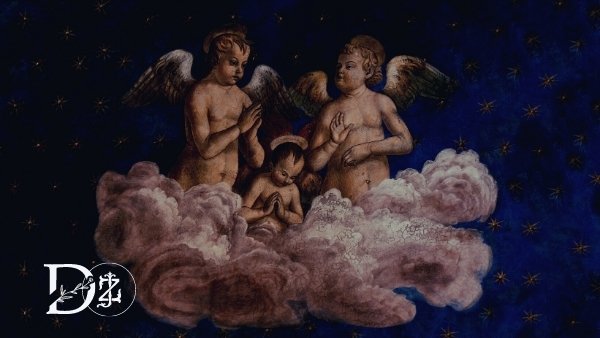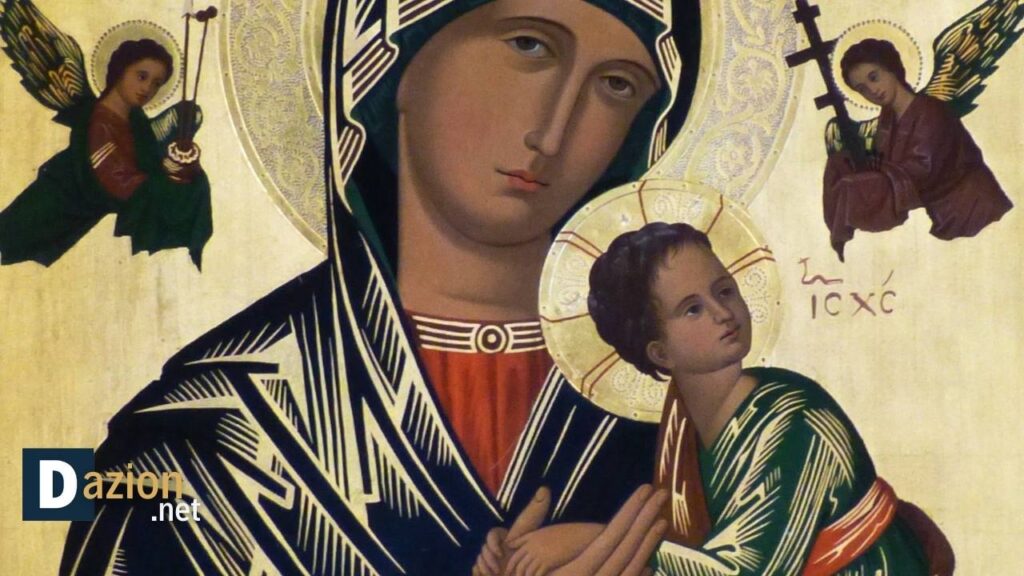Hello and welcome to daizon.net! I’m Alex Lightwood, your guide on this journey of exploration and discovery. Today, we’re about to embark on a fascinating expedition into the world of hair cutting in the Bible. Intriguing, isn’t it?
Now, you might be wondering, “Hair cutting? In the Bible? What’s so special about that?” Well, my friend, that’s exactly what we’re here to uncover. This isn’t just about snipping locks of hair; it’s about delving into a rich tapestry of symbolism, tradition, and spiritual transformation.
Are you ready to dive in? Let’s go!
The Significance of Hair in the Bible

In the Bible, hair is more than a mere decorative adornment. It’s a symbol of strength, identity, and consecration. Remember Samson, the Nazirite with unshorn hair, whose power was legendary?
His hair was a physical manifestation of his vow to God, a sign of his dedication. When his locks were cut, he lost strength, showing the profound link between hair and spiritual power.
What Are the Spiritual and Symbolic Meanings Associated With Hair Cutting in the Bible?
| Spiritual/Symbolic Meaning | Explanation | Impact on Believers |
|---|---|---|
| Consecration and Dedication | In the Bible, hair cutting is often linked to consecration and dedication to God. The act of not cutting one’s hair, as seen in the Nazirite vow, signifies a special commitment and separation to God’s service. | This practice inspires believers to make personal vows and dedicate themselves to a higher purpose. It encourages a sense of devotion and spiritual focus. |
| Humility and Submission | Cutting hair can symbolize humility and submission to God. In specific contexts, shaving the head or trimming hair was an expression of mourning, repentance, or deep humility before God. | Cutting hair can symbolize humility and submission to God. In specific contexts, shaving the head or cutting hair was an expression of mourning, repentance, or deep humility before God. |
| Spiritual Transformation and Renewal | Hair cutting can represent a significant change, both spiritually and personally. For instance, the shaving of the Levite priests’ bodies during their consecration ceremony symbolized a transformation and renewal as they prepared to serve in the Temple. | This symbolism encourages believers to embrace spiritual transformation and renewal in their own lives. It signifies a fresh start and a commitment to a higher spiritual calling. |
The Bible’s spiritual and symbolic meanings associated with hair cutting convey profound messages to believers. They emphasize the importance of consecration, humility, and spiritual transformation in one’s faith journey.
The Nazirite Vow and Hair

The Nazirite vow is a prime example of the spiritual significance of hair in the Bible. This vow, detailed in the book of Numbers, involved a commitment to abstain from wine, avoid contact with the dead, and, significantly, not cut one’s hair. The unshorn hair of the Nazirites was a symbol of their consecration, their dedication to God. It was a visible sign of their vow, a constant reminder of their spiritual commitment.
Is Cutting Your Hair a Sin?
So, is cutting your hair a sin? The Bible doesn’t explicitly label haircutting as a sin for everyone. The prohibition was specific to those under the Nazirite vow. For others, cutting hair was often associated with mourning, repentance, and humility. For instance, in the book of Deuteronomy, shaving the head was a sign of mourning.
| Biblical Figure | Hair-Related Action | Spiritual Symbolism |
|---|---|---|
| Samson | Did not cut his hair as part of his Nazirite vow. Lost his strength when his hair was cut. | Hair represented his vow to God and his divine strength. Cutting his hair symbolized breaking his vow and losing his divine strength. |
| Nazirites | Did not cut their hair during the period of their vow. | Their uncut hair was a symbol of their vow and consecration to God. |
| Levite Priests | Shaved their bodies, including their hair, as part of their consecration ceremony. | Shaving symbolized ritual purification and spiritual transformation in preparation for their service in the Temple. |
| Mourners (General Israelites) | Cut or shaved their hair as a sign of mourning or repentance. | Hair cutting in this context symbolized grief, humility, and submission to God. |
| Women (as per Apostle Paul’s teaching) | Encouraged to have long hair. | Long hair was seen as a woman’s glory and a sign of femininity. |
Hair Cutting and Ritual Purity
The Bible’s teachings about haircutting also reflect the time’s cultural context and social norms. Long hair was often seen as a sign of nobility and strength, especially for men. For women, it was a symbol of modesty and submission.
In Leviticus, we find references to haircutting in the context of ritual purification. Priests, or Levites, were required to shave their bodies during their consecration ceremony. This act symbolized a spiritual transformation, a renewal of their beings as they prepared to serve in the Temple or Tabernacle.
Hair as a Symbol of Glory and Vanity
Hair is also seen as a symbol of glory, especially in the context of women. Long hair was considered a crown, a glory to women. However, it also had the potential to become a symbol of vanity and pride. Therefore, cutting or covering hair could be seen as an act of modesty and submission.
Hair Cutting in Cultural Context
In other instances, cutting off hair in the Bible signifies mourning, grief, and repentance. It’s a symbolic act, a physical expression of inner turmoil. When the Israelites were in mourning, they often shave their heads as a sign of their sorrow.
In the book of Leviticus, the priests, or Levites, were instructed to shave their bodies as part of their ritual purification. This shaving was a sign of their submission and humility before God, a physical manifestation of their spiritual transformation.
How Does the View on Hair Cutting Reflect the Spiritual or Symbolic Beliefs Within Each Religion or Philosophy?

The Bible’s teachings about haircutting must be understood in their cultural context. Hair length and styles were tied to social norms, gender roles, and religious laws. The interpretations and practices varied across different cultures and times.
| Religion/Philosophy | View on Hair Cutting |
|---|---|
| Christianity (Bible) | In Buddhism, shaving the head is a common practice among monks and nuns as a symbol of renunciation and detachment from worldly attachments. Haircutting is a personal choice for lay Buddhists and is not explicitly linked to religious practices. |
| Islam | Hair cutting is associated with specific circumstances like mourning, repentance, and vows like Nazirite. It can also symbolize spiritual transformation and consecration. |
| Taoism | Hair is considered a vital part of the body and its energy. Taoist practitioners may choose not to cut their hair to preserve and cultivate their vital energy. |
| Buddhism | In Buddhism, shaving the head is a common practice among monks and nuns as a symbol of renunciation and detachment from worldly attachments. Haircutting is a personal choice for lay Buddhists and not explicitly linked to religious practices. |
| Zen Buddhism | Hair cutting is associated with specific circumstances like mourning, repentance, and vows like Nazirite. It can also symbolize spiritual transformation and consecration. |
| Sikhism | In Buddhism, shaving the head is a common practice among monks and nuns as a symbol of renunciation and detachment from worldly attachments. Haircutting is a personal choice for lay Buddhists and not explicitly linked to religious practices. |
| Hinduism | Shaving the head or beard in Judaism has specific religious and cultural contexts. For example, during periods of mourning, it is customary for Jewish men to refrain from cutting their hair. Hair cutting is not seen as inherently religious but may be influenced by cultural practices. |
| Judaism | In Buddhism, shaving the head is a common practice among monks and nuns as a symbol of renunciation and detachment from worldly attachments. Haircutting is a personal choice for lay Buddhists and is not explicitly linked to religious practices. |
What Does the New Testament Say About Cutting Hair?
In the New Testament, the Apostle Paul discusses hair length in the context of cultural norms and gender roles. He suggests that men should have short hair, while women should have long hair. However, these teachings are generally understood to reflect the cultural norms of the time rather than divine commandments.
FAQs
What does the Bible say about cutting hair?
The Bible doesn’t universally prohibit cutting hair. However, it associates hair cutting with specific circumstances like mourning, repentance, and vows like Nazirite.
Who cut their hair in the Bible?
Samson, under the deceitful influence of Delilah, had his hair cut, leading to the loss of his divine strength. Levite priests also cut their hair as part of their consecration ceremony## Hair Cutting as a Symbolic Act.
Hair cutting in the Bible often served as a symbolic act. It was a physical manifestation of internal changes or commitments. Whether it was a sign of mourning, a symbol of a vow, or a part of a purification ritual, hair cutting carried deep spiritual significance.
People’s Question On Hair Cutting in The Bible
1. Hey Alex, what does the Bible say about cutting hair?
Great question! The Bible doesn’t universally prohibit cutting hair. However, it associates hair cutting with specific circumstances like mourning, repentance, and vows like Nazirite.
2. Is it a sin to cut your hair? I’ve heard different things
I hear you, and it’s a common question. The Bible doesn’t label haircutting as a sin for everyone. The prohibition was specific to those under the Nazirite vow. For others, it’s not considered a sin.
Who in the Bible cut their hair?
Well, the most famous example is probably Samson. Under the deceitful influence of Delilah, Samson had his hair cut, leading to the loss of his divine strength. Levite priests also cut their hair as part of their consecration ceremony.
What does the New Testament say about cutting hair?
In the New Testament, the Apostle Paul discusses hair length in the context of cultural norms and gender roles. He suggests that men should have short hair, while women should have long hair. However, these teachings are generally understood to reflect the cultural norms of the time rather than divine commandments.
What’s the deal with hair in the Bible? Why is it so important?
Hair in the Bible is a powerful symbol. It can represent strength, identity, and consecration. It’s not just about style; it’s about symbolism, identity, and spiritual commitment.
I hope these answers help clarify some of the mysteries surrounding hair cutting in the Bible.
The Glory of Hair: A Biblical Metaphor
In the Bible, hair is often used as a metaphor for glory and honor. The Apostle Paul, in his first letter to the Corinthians, refers to a woman’s long hair as her glory. This metaphor extends beyond the physical to represent believers’ spiritual glory in Christ.
Final Thoughts:
Thank you for joining me on this enlightening journey through the world of hair cutting in the Bible. We’ve delved into the depths of symbolism, tradition, and spiritual transformation, and I hope you’ve found it as fascinating as I have.
We’ve discovered that hair in the Bible is far more than a physical attribute. It’s a powerful symbol, a manifestation of vows, a sign of mourning, and a mark of consecration. From the Nazirites’ unshorn locks to the Levite priests’ shaven heads, every strand of hair tells a story, and every lock holds a lesson.
Remember Samson, the Nazirite with the uncut hair, whose strength was legendary? His story reminds us of the profound link between physical actions and spiritual commitments. And let’s not forget the Levite priests, who shaved their bodies as part of their consecration ceremony, symbolizing a spiritual transformation and renewal.
But what does this all mean for us today? Well, it’s a reminder that even the most mundane aspects of our lives can carry deep spiritual significance. It’s an invitation to look beyond the surface and seek the symbolic and spiritual dimensions of our everyday experiences.
As we wrap up this discussion, I encourage you to keep exploring, questioning, and seeking. The Bible is a rich tapestry of stories, laws, and symbols. If you will, each strand, and each lock of hair, adds depth and color to the overall picture. So, keep weaving your tapestry of understanding.
Thank you for reading! I hope this exploration of haircutting in the Bible has sparked your curiosity and deepened your understanding. Stay tuned for more intriguing discussions on daizon.net. Until then, keep seeking, keep learning, and keep growing.
Suggestion: